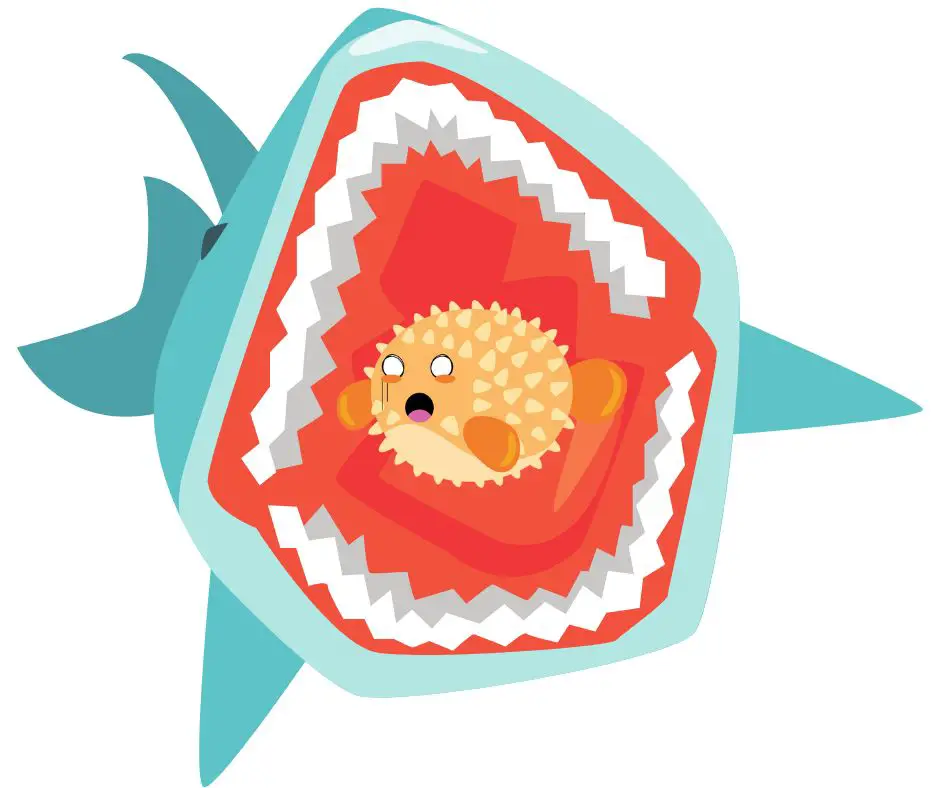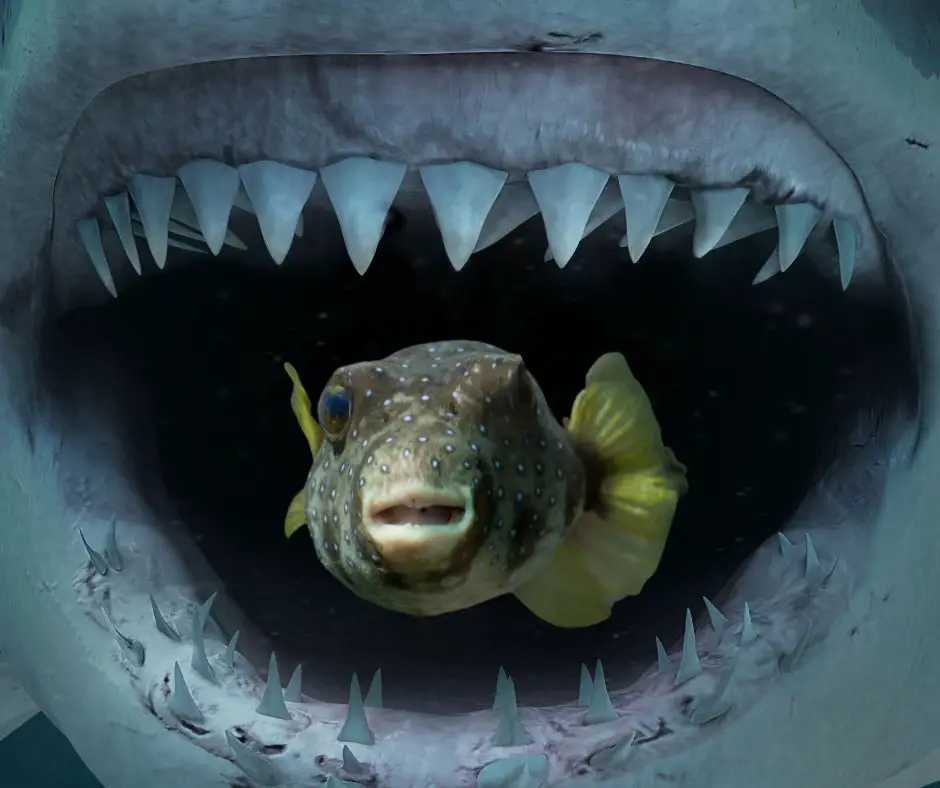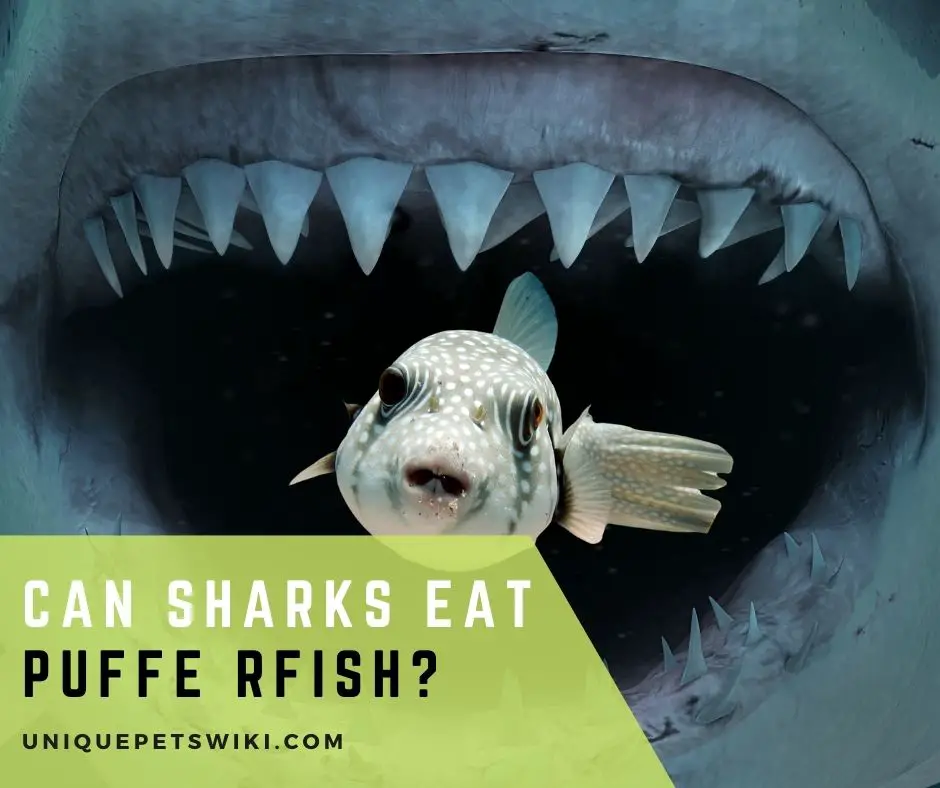Pufferfish are delicious, attractive, and distinctive fish to have as a pet in your home aquarium.
To protect themselves from predators, they have different traits, such as toxins that repel predators and save pufferfish from being eaten. So, can sharks eat pufferfish?
Pufferfish are not like other fish that people and marine creatures eat. It is important for people to understand the benefits and drawbacks of eating pufferfish because the toxicity of pufferfish can kill both animals and humans.
This article will teach readers about animals and marine species that can eat pufferfish.
Reading the article will also teach people about the toxins found in pufferfish and the problems they might cause.
So, if you want to learn everything there is to know about pufferfish, read the entire article.
Contents
Can Sharks Eat Pufferfish?
Sharks can eat pufferfish. Sharks will devour anything that is smaller than them and can be swallowed easily.
Pufferfish, on the other hand, carry toxins that are detrimental to their predators. These toxins do not affect tiger sharks, and they can eat pufferfish.
Tiger sharks are macropredators that consume anything that comes their way. These sharks get their name from the tiger-like color patterns on their bodies when they’re young. As a result, they assault the pufferfish and easily eat them.
Why Do Sharks Eat Puffer Fish?
Sharks don’t have a specialized diet; they eat whatever they can suck and swallow. They’re also known as garbage eaters since they consume plastics, containers, and tins.
Pufferfish have short fins that make it difficult for them to swim. As a result, sharks may readily hunt and eat them to satisfy their needs.
Sharks are mostly found in the depths of the sea and can be found in tropical and subtropical coastal areas. They have sharp and serrated teeth, as well as strong jaws, which they use to crush their prey.
Sharks and other predators eat pufferfish as a source of protein. Aside from that, their meat is tasty, enticing predators to consume them. Sharks eat them to meet their nutritional needs and maintain their growth.

How Can Sharks Eat Puffer Fish?
Sharks, particularly tiger sharks, are immune to pufferfish toxins. Neurotoxin and tetrodotoxin are two toxins found in pufferfish.
These toxins can induce toxicity and disrupt mammal and fish cellular and metabolic functioning.
Sharks are the top predators in the ocean, and they can consume anything. Suction is used by some sharks to swallow their prey.
They do not distinguish pufferfish from other prey when they see them and consume them.
If a shark comes across a hundred pufferfish, it will eat them all. Sharks, particularly tiger sharks, are unaffected by pufferfish consumption.
As a result, they attack and eat the pufferfish as they would any other meal.
Why Are Sharks Immune to Pufferfish?
Pufferfish produce toxins as a result of the food they eat. In the gut of pufferfish, microorganisms thrive in a symbiotic relationship.
Toxins are produced by these symbiotic bacteria, which pufferfish employ to defend themselves against predators.
Sharks’ immunity to pufferfish has not been demonstrated through genetics or research.
Experts believe that sharks’ DNA has the potential to counteract the toxins found in pufferfish. This helps sharks in maintaining a healthy marine food chain and habitat.
Fish, crabs, mollusks, crustaceans, invertebrates, rubbish, tins, and other marine mammals are all eaten by sharks in the water.
Sharks’ diverse diet, according to scientists, renders them immune to toxins. They create chemicals that counteract pufferfish toxins.

What Predators Eat Puffer Fish?
Pufferfish are preyed upon by sharks, sea snakes, and humans. Sharks and sea snakes are unaffected by pufferfish toxins.
Because sea snakes cannot swim swiftly, they may readily hunt pufferfish at the bottom of the ocean.
Sea snakes live at the bottom of water without gulping air. Small fish and invertebrates, particularly pufferfish, are prey for sea snakes.
Due to their tiny fins, pufferfish are poor swimmers. As a result, sea snakes devour them easily and are immune to their toxins.
Humans also hunt pufferfish because their meat tastes better. Humans, on the other hand, are harmed by pufferfish flesh.
As a result, non-toxic and non-poisonous pufferfish are grown in some countries by managing their food.
Pufferfish meat is high in protein and oil, making it a healthy choice. As a result, humans and other consumers will find it more appealing.
So, pufferfish in the diet can have a significant impact on the growth of both marine animals and humans.
What Happens If a Fish Eats a Puffer Fish?
Toxins produced by pufferfish can kill fish, humans, and other predators. Fish are not resistant to pufferfish poisons.
They will die of toxicity if they eat the pufferfish. Toxins have the potential to disrupt normal cellular and metabolic activities.
Toxins produced by the pufferfish’s symbiotic bacteria include neurotoxins and tetrodotoxin. Neurotoxins disrupt the coordination of the fish’s bodily organs by acting on the neurological system.
Tetrodotoxins inhibit metabolic activities at the cellular level.
As a result of their lack of coordination, the fish will be unable to swim in the water. The neurotoxins may cause the fish to become paralyzed. However, Non-toxic pufferfish grown in some fish farms are fed to the fish.
Final Sentences
Sharks, particularly tiger sharks, are resistant to pufferfish neurotoxin and tetrodotoxin.
The sharks’ genetics and varied food assist them in neutralizing these toxins. Sharks can easily hunt pufferfish because their short fins make them poor swimmers.
Sea snakes are pufferfish predators, and puffer toxins have little effect on them.
Sea snakes feed on pufferfish at the bottom of the ocean. In Japan, non-toxic pufferfish are grown for human consumption by carefully regulating their diet and symbiotic bacteria.
